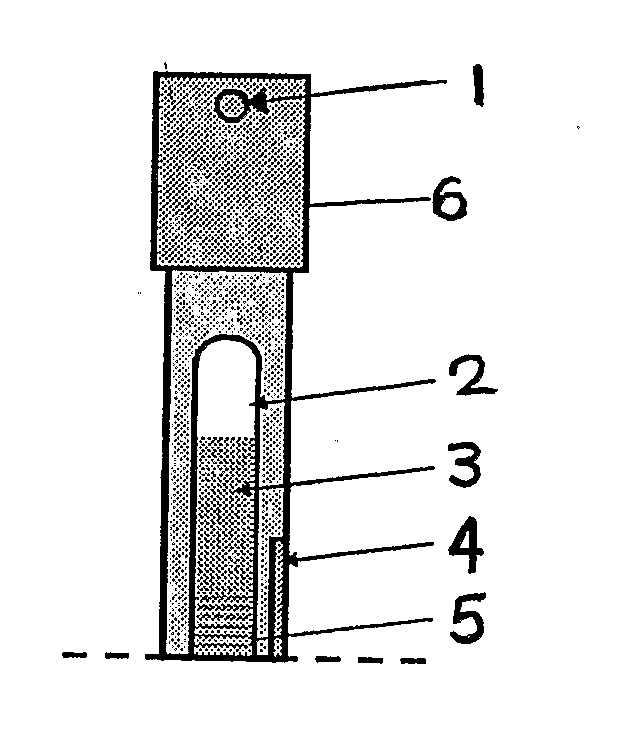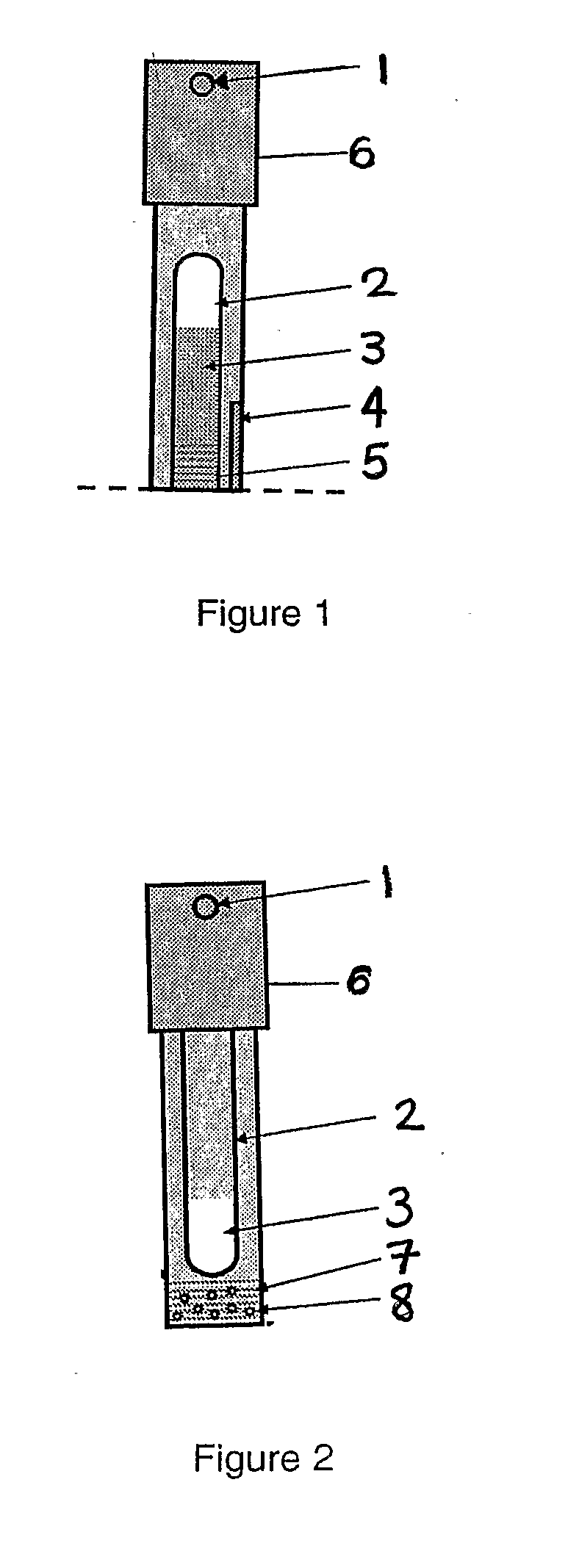Use of Holographic Sensor to Determine Sterilisation
a holographic sensor and sterilisation technology, applied in the field of holographic sensor use to determine sterilisation, can solve the problems of slow indicators and require up to seven days, and achieve the effect of increasing accuracy and more rapid results
- Summary
- Abstract
- Description
- Claims
- Application Information
AI Technical Summary
Benefits of technology
Problems solved by technology
Method used
Image
Examples
Embodiment Construction
[0025]Holographic sensors are very versatile and can be designed to be sensitive to a variety of conditions. For example, an enzyme can be included in the holographic sensor, the activity of which is correlated with the survival of a test microorganism. In this case, the holographic sensor may comprise a medium which interacts with the enzyme, where the degree of interaction varies with the activity of the enzyme.
[0026]In a preferred embodiment, the sensor includes a spore of a microorganism. In this embodiment, growth medium is provided so that it can be contacted with the holographic sensor after contact with the sterilising agent to cause growth of any surviving spores. The holographic sensor can be designed to be sensitive to spore metabolites used as biomarkers (such as H+, DPA). As the spores are embedded in the sensor itself, the biological indicator exhibits increased sensitivity and a rapid response time. Alternatively, the physical changes alone, such as swelling, caused b...
PUM
| Property | Measurement | Unit |
|---|---|---|
| wavelength change | aaaaa | aaaaa |
| wavelength resolution | aaaaa | aaaaa |
| physical property | aaaaa | aaaaa |
Abstract
Description
Claims
Application Information
 Login to View More
Login to View More - R&D
- Intellectual Property
- Life Sciences
- Materials
- Tech Scout
- Unparalleled Data Quality
- Higher Quality Content
- 60% Fewer Hallucinations
Browse by: Latest US Patents, China's latest patents, Technical Efficacy Thesaurus, Application Domain, Technology Topic, Popular Technical Reports.
© 2025 PatSnap. All rights reserved.Legal|Privacy policy|Modern Slavery Act Transparency Statement|Sitemap|About US| Contact US: help@patsnap.com


